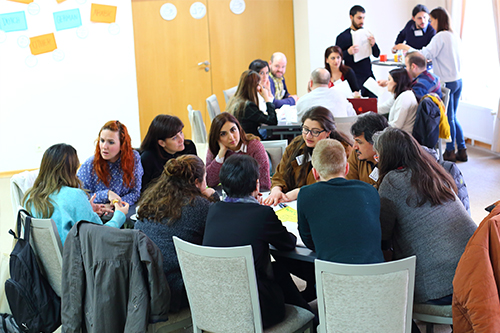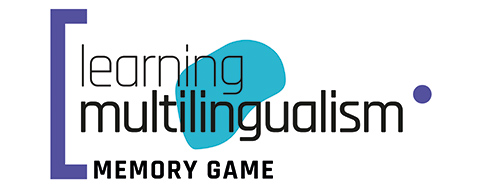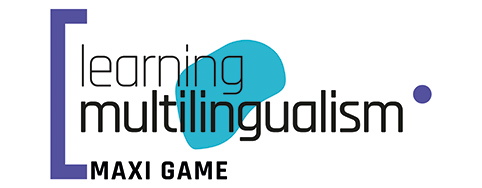LEARNINGMULTILINGUALISM
MEMORY GAME PARTICIPANTS
Ece SakaJule Pfeiffer-Spiekermann (Pinselfisch)
Michaela Hieke (LaKI)
Solveig Esman (RAA Berlin)
EVENTS
1. Meeting: 07 – 09 October 2017, Freising2. Meeting: 08 – 10 March 2018, Freising
3. Meeting: 24 – 26 May 2018, Freising
4. Meeting: 18 – 21 October 2018, Dortmund
Local Meeting: December 2018, Berlin
Local Meeting: February 2019, Istanbul
MAXI GAME PARTICIPANTS
Berfin Balık (IFAK e.V.)Betül Bozkurt (BİR-İZ Derneği)
Hevidar Yıldırım (IFAK e.V.)
Lia Yuanidi (ODGEDER)
Pınar Şimşek (BİR-İZ Derneği)
EVENTS
1. Meeting: 07 - 09 October 2017, Freising2. Meeting: 08 - 11 February 2018, Düsseldorf
3. Meeting: 28 June - 1 July 2018, Bochum
4. Meeting: 04 - 07 November 2018, Bochum
5. Meeting: 31 March – 03 April 2019, Berlin

Group Description

Coming together along the theme of “multilingual learning”, the Working Group consists of civil society representatives, social workers, psychologists, independent artists and educators from Turkey and Germany.
Multilingual Memo Game Working Group aims to design a board game that will promote social cohesion, cultural exchange, multilingualism and fun in diverse learning environments that bring children with and without refugee backgrounds together.
During the first working meeting in Freising, Germany in October 2017, the Working Group resolved to design not one, but two games to promote multilingualism and social cohesion, namely MAXI Game and Multilingual Memory Game. Thus the working group splitted into two sub-groups accordingly, to work on their prospective projects for the next one and half years.
With a firm belief in the power of game-based learning, the participants have started their work on devising easily applicable games that will be used both in schools and in child-friendly areas of social centers and community houses.
Multilingual Memory Game claims that all the languages spoken in a children group tantamount to the same value. Children will more easily identify with an education material that acknowledges this principle.
Participants of this working group decided to develop a game, which will be used both in Germany and Turkey, around the common theme of "daily life in my neighborhood." Accordingly, the game will consist of game cards that feature a hand-drawn element from the neighbourhood, surrounded by corresponding words to that image in different relevant languages.
The game is predominantly based on drawings and images and the ability to match the card pairs. However, by adding several multilingual components in the game, the Working Group aims to draw attention to the fact that we are living in multilingual and multicultural societies. There is a growing need to translate this asset into our learning environments in a creative way in order to foster inclusion.
Thus, the game aspires to bolster creative communication and peer learning among children, welcome multilingualism in learning spaces, and develop curiosity for new languages.
The Game Box will include:
Game Cards: Each card will feature a hand-drawn element from the neighbourhood, surrounded by corresponding words to that image in different relevant languages. The deck will consist of 25 pairs of cards. The players can always create more cards and add them to the deck.
Trainer Booklet: The booklet will be available under the TOOLS headline of this website. It will be in Turkish, English, Arabic, Kurdish and German and open access for anyone.
Language Stickers: The game box will feature language tags, which will allow the trainers to customise the deck to cover family languages in a specific classroom.
Our Neighborhood Map:The game box will also contain a neighbourhood map that will feature the images on the cards. It can be used for some game options suggested in the booklet.
Language List: A list of languages that can be included in the game and most widely spoken in the region will be created.
Additional Activities: Apart from serving as a memory game, the same material will be used to play different games. In the trainer booklet, a few alternative game options will be offered.
Downloadable Version: The game will primarily be designed as a box game and distributed free of charge. However, in order to make it more accessible for common use, it will also be available for downloading from the TOOLS segment of this website.
The game is suitable for formal as well as for non-formal education.
